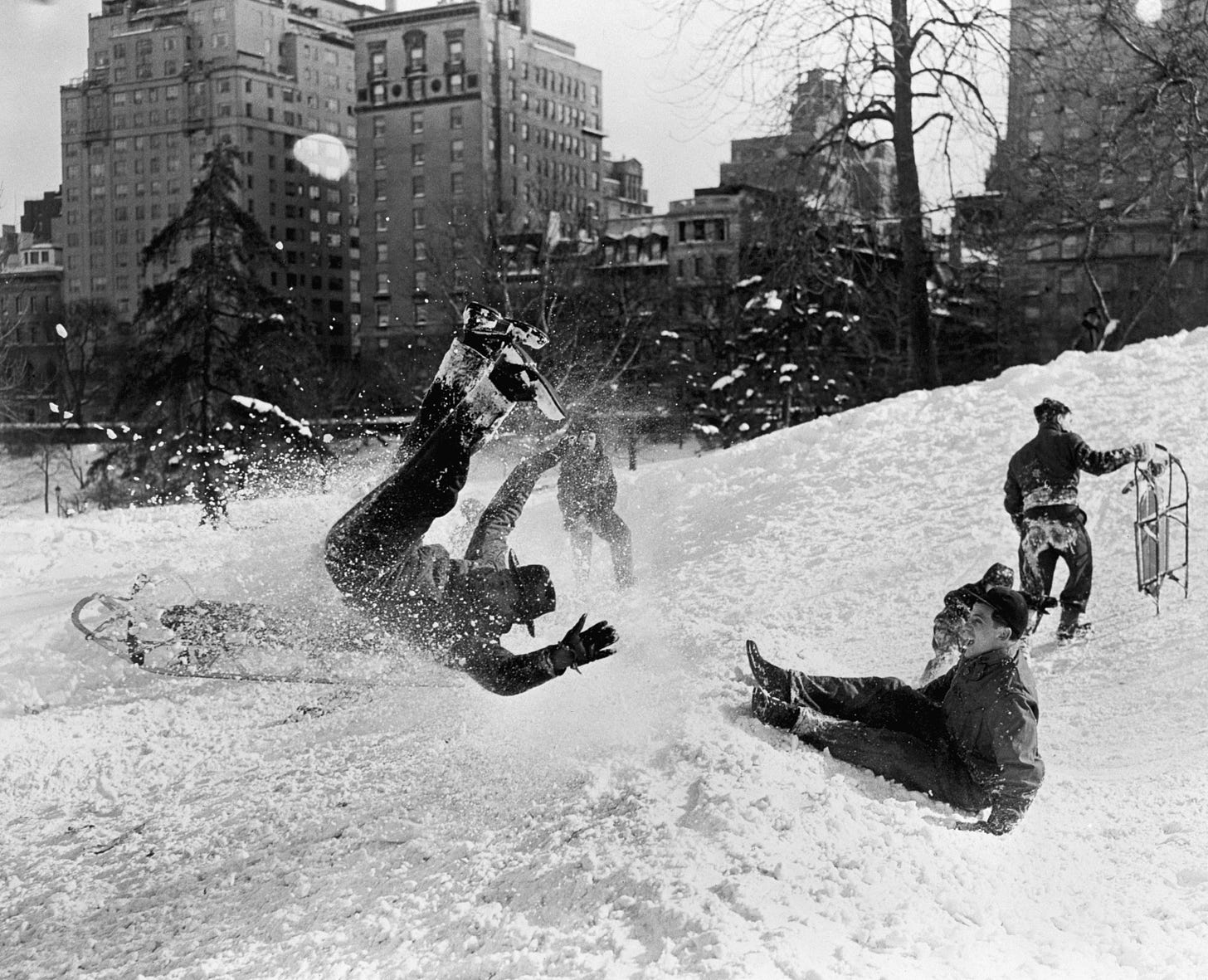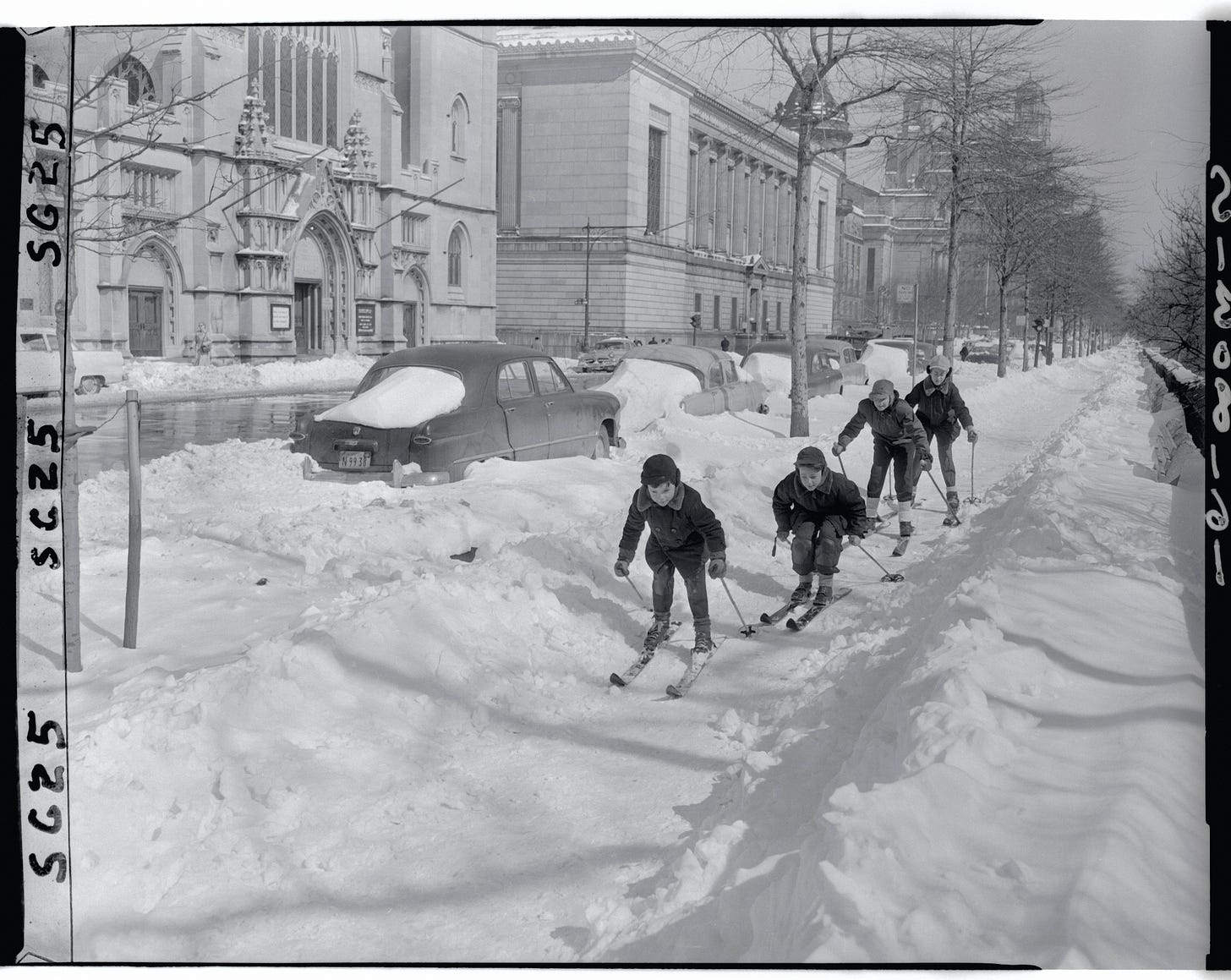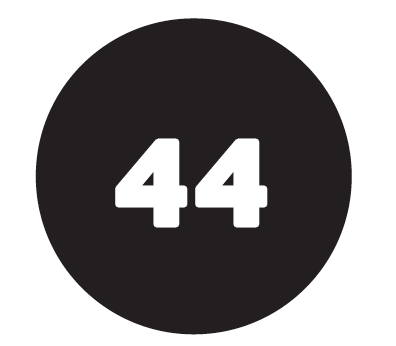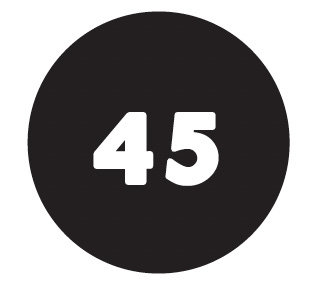I am aware that most of the news today is bad. Xi and Putin, twin icons of 21st century authoritarianism (or, perhaps we should be forthrightly calling it fascism) have issued a joint communique declaring they “intend to counter interference by outside forces in the internal affairs of sovereign countries under any pretext,” which is enough to make the good people of Ukraine and Taiwan shiver a bit more. We learned new details about how Trump, who would clearly like to play in the Xi-Putin league, wanted to wreck our democracy following his defeat. Even the schadenfreude that comes with Mark Zuckerberg losing $30 billion of his ugly fortune in the course of a single trading day doesn’t quite compensate.
But here’s what does make me put my gloom on hold, at least for now. We woke up in Vermont this morning to the first really great snowfall of the season, a good foot of fluffy powder on the ground. I’ve been shoveling happily out in the ten-degree cold, and now I’m sitting happily by the window watching the last gentle remnants of the storm drift down as I type. And before long I’ll be happily outside on a pair of skis, wandering between the trees.
Across a wide swath of America today, from Texas to Maine, there’s snow on the ground this morning. To read the news accounts it’s all sadness and woe—canceled flights, interrupted commutes, burst pipes. And of course, especially in areas not used to the white stuff, it can be hard.
But surely there are other people who feel as I do: that there’s no delight on earth that quite matches the fact that for a while friction lets loose its grip. That you can slide. For those of us who won’t get to go up in Jeff Bezos’s spaceplane for a few minutes beyond gravity, this is as close to another planet we ever get, a planet where the normal rules stop applying. I grin all winter long.
The snowstorm coincides with the opening of the Winter Olympics. I don’t intend to wade into the politics of the Games in this account—I think anyone reading my ongoing novel serialized here (two new chapters today) will have a pretty good sense of my repugnance at the Chinese regime. (More directly here). But if you decide to watch anyway, pay less attention to the scores and the flagwaving, and more to the simple goofy joy of slipping across snow and ice. Even curling is incrementally more interesting than bowling, if only because of all the sliding involved.
The climate crisis, of course, is eroding this simplest of joys—winter is ever shorter, and too often snow comes as rain instead; Vermont is 5 degrees warmer than it used to be, so winter’s icy grip is often more like a soggy handshake. I think we need to fight climate change with everything we’ve got—just not on a morning when fresh snow has settled down across the land. So I’m heading out to slip for a while, and I hope you are too. Be careful out there, but not so careful that you don’t have fun.

Before I go, a bit of further news from around the climate world
+More depressing numbers on just how many oil, gas, and coal leases and subsidies the Biden administration has been handing out. Jeremy Nichols from Wild Earth Guardians: “This administration seems to actually have a zeal for catering to the oil and gas industry, something that was very unexpected and now very distressing as the climate crisis ravages our nation.”
+India’s richest man, Mukesh Ambani, has big plans for green hydrogen production using the subcontinent’s ample supply of sun.
+From Forbes, a useful account of Big Oil’s effort to slow-walk the energy transition. As Big Tobacco used demand in the rest of the world to stay profitable, so the oil giants want to use developing-world demand to stave off any quick changes in the planet’s energy profile. Walt Van Lierop:
We all understand that we cannot just turn a magical switch and suddenly be carbon neutral. The world does need an "orderly energy transition”—just not the kind where Big Oil prioritizes its stock market performance over humanity’s future.
+Great reporting from Julia Rock on whether the Federal Envergy Regulatory Commission (FERC) might be ready to transform itself from an industry rubberstamp handing out pipeline permits to anyone who wants one.
+43% of the oil and gas companies in Colorado own only inactive and unproductive wells, a new analysis finds. Which means there’s a very good chance that the taxpayers will end up on the hook for plugging them.
+Sammy Roth, in the LA Times, offers a particularly useful essay on how climate journalists should approach their work.
In the same way that journalists ought to be comfortable denouncing systemic racism and pushing politicians to tackle homelessness, we need to get comfortable decrying the horrors of the climate crisis and demanding solutions.
+An important essay from Derrick Jackson on the intimate connection between voting rights and environmental progress:
The chances of having state and federal agencies with the commitment to eliminate the disparities, remediate the damage, and regulate future industrial pollution depends on the most affected people being able to elect the most effective, representative government.
Meanwhile, here’s the latest installment of our epic nonviolent yarn. If you need to catch up on the first 43 chapters of The Other Cheek, check out the archive.
Surveillance Report
Stephen Ting
Colorado Springs, Colorado
Subjects Perry Alterson and Mahali Khatoane arrived at Colorado Springs Airport via Delta Flt. 1174 on Friday evening, and were met by a young woman driving a Subaru Forester. I trailed them north to a remote location 45 minutes west on Highway 24, to an institution identified as SGI. There I observed a number of people engaging in yoga and talking to, stroking, and in one case licking the bark of trees. Subjects, joined by another young woman, spent the evening talking and drinking beer (brand was impossible to ascertain) amongst the trees.
They spent much of the next day inside, emerging for exercise (Khatoane) and apparently to search the property for a stronger cell signal (Alterson). After dark I was able to approach the building more closely, and through a window could observe the subjects, their friends, a cluster of older people, and a young girl in a judo gi. They were hosting a party in honor of the oldest among them—to judge by the number of candles on his cake, he is apparently a centenarian.
At midday the next day the subjects emerged, again with the young woman who had retrieved them from the airport, and this time the small girl, still wearing her judo attire. They returned to Colorado Springs, dropping off the small girl in a questionable neighborhood, and then returning to the airport.
“Let me list the things I don’t like,” said Minister Hua, speaking to a small table of his aides at State Security. Director Liu from the Propaganda Department listened from a bench to one side of the table.
“First, when we took apart Alterson’s apartment in California, we found nothing linking him to the Dalai Lama. That in itself is important, since we know from Jimmy Lee that he is the one who helped plant the cartoon. He’s obviously being careful. He looks like some kind of harmless computer nerd, but looks can be deceiving.
“Two, we weren’t the only ones interested in the apartment. Literally an hour after our break-in someone else tried the same thing, but turned around when they saw we’d beaten them. We have no idea who—Ting is hardly a highly trained operative, and in any event this thing has too many moving pieces for one man. More have been assigned.
“Three, when we examined the computer we lifted from the apartment, it was hyper-secure. By the time we finally got it back to Beijing and broken the various protections, all email caches had been deleted. Basically there was nothing left on the computer except endless downloads of forty and fifty year old music, almost as if he was laughing at us. Which makes me wonder if he’s working with some other branch of some other government; our experts say this is high quality security work.
“Four, here’s an odd but suspicious coincidence. When agent Ting followed the visitor to their apartment to a lunch date last month, she met this man.” A picture of Matti flashed up on the monitor at the end of the room, eating lunch with Cass. “His name is Matthias Persson, and his parents are Norwegian diplomats. And—we have video of this same man meeting with the Dalai Lama during the first phase of his march earlier this year.” The screen showed grainy footage of Matti and the DL talking over mugs of tea, and then the Uber arriving to fetch him. “Immediately after their meeting, Persson returned to the Silicon Valley area, where he is employed in the tech industry, in some kind of unclear intermediary role.”
“He tweets incessantly,” said one of the aides. “But his sentiments are very enigmatic. ‘Death is a design error,’ he tweeted earlier today.”
“Five,” continued Minister Hua, “the Colorado institute that seems to connect many of these people is also opaque. SGI, it is called, and it appears to have high levels of internet security. Agent Ting’s story of people embracing trees seems far-fetched, but press clippings confirm that it’s the center of some kind of yoga practice involving forests.”
“Another Falun Gong?” asked an aide.
“Who knows,” the minister said. “But almost everything seems somehow to be connected. Meditation, the Dalai Lama, Silicon Valley. We’re working on identifying the other participants in this meeting. We have a poor image of the centenarian that agent Lee took through the window.” A blurry picture of Professor Vukovic appeared on the screen, wearing a purple party hat. “Image matching is proving difficult because of his age, but at least one analyst has suggested he may be Marko Vukovic, who first appears in our files as a Stalinist guerilla during the Second World War. Subsequent history, if indeed it’s him, includes meetings with a number of other subjects under surveillance at past moments.” Pictures flashed of the professor standing next to Nelson Mandela, Aleksandr Solzhenitsyn, and former UN secretary general U Thant.
“I have no idea how it all ties together,” said the Minister. “And I know the Dalai Lama is currently walking across India silently picking up soda cans and cigarette butts, so we’ve downgraded our alert about him. But we need to tie together what’s happening here. I’ll expect full analysis reports by morning.”
The aides filed out of the room. Director Liu helped himself to a glass of the Ardbeg from the minister’s cabinet, and poured out another dram for his friend. “I’ll tell you what worries me,” he said, after a long sip.
“I’m not a security guy, just a propaganda apparatchik, so maybe I’m off base here,” he said. “But it’s that little girl in the white robes. You’re aware, yes, that we’ve been preparing for decades about what to do when the DL dies—that we’re going to choose a successor from Tibet before they can rally around someone?”
“Of course,” said Minister Hua. “It’s the critical moment. When one DL dies, a hunt takes place for his successor. The high lamas go and medi-tate at some lake, and then spread out across the countryside. They say this DL was discovered when they showed him some beads from his predecessor and he said ‘It’s mine, it’s mine.’ He was born in a cowshed, they say.”
“Exactly,” Liu replied. “So our plan has always been to name our own Dalai Lama, someone we can raise and control. Not every monk will follow him, but enough will; it will split the community enough that it’s never a threat.”
“I’ve even seen the names on a list,” said Hua.
“Right. As they get too old we cross them off and add some new ones. But you know that the DL has begun to say, quite publicly, that his next incarnation may not come from Tibet? That the next Dalai Lama may already be born? That he may be in the west, and not even a Buddhist. That he may be a girl? We’ve assumed he’s saying that just to delegitimize whoever we’ll pick as his successor when he dies. But what if he’s speeding up the timetable?”
He walked over to the screen, and pointed to the picture of Gloria standing on a chair next to the professor, also wearing a pointy party hat and clutching a can of Caffeine Free Diet Coke. “What if that is the next Dalai Lama?”
Taz Anderson and Minnie Reyes were showing the same pictures to a small cluster of agents in the FBI’s San Francisco bureau. “These are the images that Ting sent back to Beijing—we intercepted them from his computer at Cal.”
“They didn’t use the diplomatic pouch?” an older man asked, frowning. “I mean, they might as well have handed them to us.”
“They don’t know we’ve made Ting,” said agent Reyes. “And they obviously needed them in a hurry.”
“Either that or they wanted us to get them,” the older man said sourly.
“The real question is why the Chinese are so interested in these kids,” said Anderson, glancing at his partner. Both of them knew that the older man—Colin Fox, special agent in charge of the San Francisco field office—was always on the alert for counter-espionage. “They follow them everywhere. Our suspicion is that Alterson and Khatoane are working for the Chinese themselves, and Ting’s job is just to make sure they stay on the straight and narrow. Khatoane is from Zimbabwe, where as you know the Chinese have made large investments in recent years.”
“And the thing is,” said Reyes, “these guys seem to be working systematically to damage America’s energy infrastructure. Their entire project has to do with overland shipment of oil by rail; working with a tribal woman in North Dakota and other confederates around the country they’ve organized blockades of tracks in seven states. Apparently the oil majors are worried enough that they got the Department of Justice to adopt new rules last month cracking down on this kind of protest.”
“How is that even possible?” said the older man. “The oil industry is the biggest richest most connected industry in the country. Some kids and an Indian lady are causing them real trouble? Really? It seems more likely, doesn’t it, that the Chinese are behind it somehow.”
“It’s definitely a possibility we’ve got to consider,” said Reyes. She was a young woman, only two years on the job, but already considered an up-and-comer, both because she was talented and because she knew how to play her superiors. “Something else. This place in Colorado where we followed Ting? With the tree worshippers? Those aren’t the only odd people there. One of the images Lee took through the window showed this young woman.” She pushed a button, and a dimly lit picture of Allie appeared on the screen. “The Austin bureau confirms that she’s Allie Salgado, who they describe as the chief proponent of arming young people on the UT campus, with links to other gun activists nationwide. She disappeared from their radar last summer—didn’t come back to campus. This is the first she’s been seen.”
“So if I’m putting this together correctly,” said SAC Fox, “we’ve got a possible armed threat to our biggest industry, somehow coordinated by the Chinese? As you know, this office is tasked first and foremost with preventing industrial espionage on the Pacific Rim. I think we better find you some more resources to work with, Agent Reyes.”
“Thank you sir,” she said.







<< 43% of the oil and gas companies in Colorado own only inactive and unproductive wells, a new analysis finds. Which means there’s a very good chance that the taxpayers will end up on the hook for plugging them.>>
Bill, the biggest snow job of all is the wasted energy of Senator Lisa Murkowski (AK-R) and Senator Joe Manchin III for ruling the Senate Energy & Natural Resources Committee (ENR) with a solo iron fist (the former Chairman produced nothing relevant on her watch with the several failed versions of her so-called “Energy Policy Modernization Act(s)” and as premier coal market price watchdog (the current Prime Minister’s email to constituents is simply a price wrap-up on coal) in spite of my countless admonitions to subpoena oil & gas CEOs to testify and submit their most expeditious strategic plans to wind down production, gathering, refining and distribution with utmost ecologically and fiducially responsible urgency, funding the shutting in of wells; shutting down and removing oil and gas facilities and pipelines; retiring, dismantling, detoxifying and removing refineries and other facilities, while prohibiting Boards of Directors from exercising Fiduciary Duty and declaring bankruptcy—polluters must pay their own “final expenses”—lest We the Prople be left holding the tab.
Far be it for me to say “I told you so, Senators!”
So far, the ENR Chairman, Ranking Member and all Committee Members have ignored or have been impotent to address this criminal negligence. I just don’t see anything changing … And We the People will be saddled with the industry’s “final expenses,” which I calculate to exceed $6- to $18 -trillion for the global 750 refineries alone, including debt pay down and equitable disbursement of Market Cap to institutions, foundations, insurance and reinsurance, superannuation funds and Ma & Pa investors.
Actually, industry profits don’t come close to footing their own bill for decades.
Houston! DC! We have a conundrum!
The happiest memories of my boyhood are wrapped up in old black and white photos of our family skiing in the Laurentians. The happiest sound of every year still comes with the SHHKIIIIII of my first slide across the snow. But I can hardly shake the sorrow of knowing that if my grandchildren are lucky enough to live to my age the lovely clean world of winter will be gone for them. Have a great ski this afternoon.